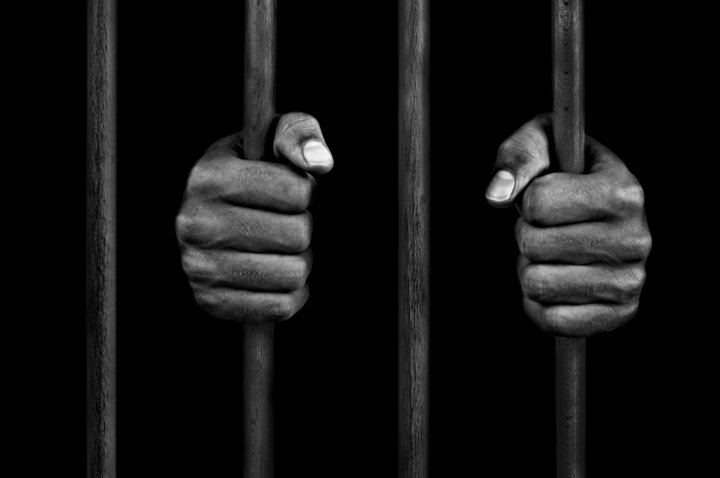By The Criminal Justice Project
 When 33-year old Amanda Ackerson Feenstra—a working wife and mother of seven from Claremore, Oklahoma—pleaded guilty to false personation, forgery, identity theft, and conspiracy charges in 2015, the presiding judge ordered her to pay over $3,000 in fines, fees, and costs without conducting an inquiry into her ability to pay, as required by both the federal and Oklahoma Constitutions and the rules of the Oklahoma courts.
When 33-year old Amanda Ackerson Feenstra—a working wife and mother of seven from Claremore, Oklahoma—pleaded guilty to false personation, forgery, identity theft, and conspiracy charges in 2015, the presiding judge ordered her to pay over $3,000 in fines, fees, and costs without conducting an inquiry into her ability to pay, as required by both the federal and Oklahoma Constitutions and the rules of the Oklahoma courts.
Today, despite working 60-80 hours a week to as a waitress to support her medically disabled husband and her children, Amanda remains indigent and unable to pay her court-ordered fines and fees, which have amounted to close to $12,000; an insurmountable amount for a woman who is often forced to choose between feeding her family and paying the court. As a result of missed payments, Amanda—the sole financial provider for her family—has been jailed for her failure to pay down her court-ordered debt.
On Thursday morning, we filed a lawsuit challenging the court’s unlawful and unconstitutional jailing of poor people for nonpayment of court-imposed fines and fees without consideration of their ability to pay. Our lawsuit seeks declaratory and injunctive relief against the Oklahoma Indigent Defense System and Washington District Court judges and executives for our clients: four individuals from Washington County, Oklahoma, who owe debt from repeating rounds of fines and incarcerations and are victims of what is effectively the equivalent of a debtors’ prison. The court’s customs and policies result in the routine jailing of poor individuals for nonpayment of court-imposed fines, fees, and costs in violation of the United States Constitution, the Oklahoma Constitution, and Oklahoma state law.
Oklahoma imprisons its citizens, even for petty crimes, with unusual frequency. Despite the crime rate in Oklahoma being only 17 percent above the national average, the state imprisons people at a rate that is 79 percent higher than the national average; the highest incarceration rate in the nation. Further, Oklahoma’s high rates of incarceration exhibit racial disparities; a 2005 study found that Oklahoma incarcerated more than four times as many African Americans as it did whites. The legislature is determined to solve its revenue problem with the ever-expanding use of court assessed fees, and as a result, Oklahoma’s court system is funded almost entirely by fines and fees collected from criminal defendants. The natural result of operating Oklahoma’s courts as revenue generators has been that an increasing number of poor people have been convicted of crimes and saddled with court-imposed debt they cannot possibly hope to repay.
Oklahoma recently surpassed Louisiana in maintaining the highest incarceration rate in the country: 1,079 of every 100,000 Oklahomans are incarcerated. The state has long held the distinction of incarcerating women at a rate greater than any other state. Eighty-five percent of these women are mothers. There are also profound racial disparities within Oklahoma’s incarceration of women, with African-American women incarcerated at nearly twice the rate of their share of Oklahoma’s adult population and for Native American women, nearly triple.
Pursuing this litigation is consistent with the Lawyers’ Committee for Civil Rights Under Law’s work to end the criminalization against poverty that results from the imposition of burdensome fines and fees. Defendants arrested for minor crimes or offenses in Washington County are consistently assessed thousands of dollars in fines and court fees that are largely disproportionate to their underlying offenses, and we are challenging the court’s policies to ensure that the citizens of Washington County are not subject to outrageous and illegal fees that send them further into an inescapable cycle of poverty.


